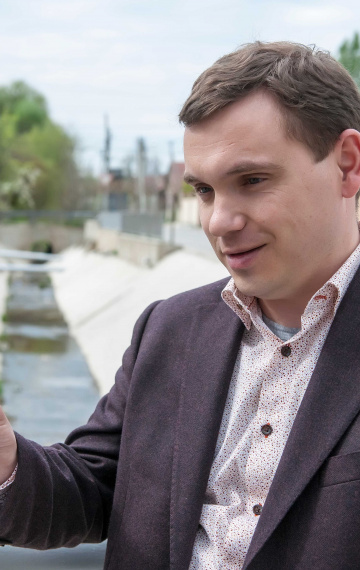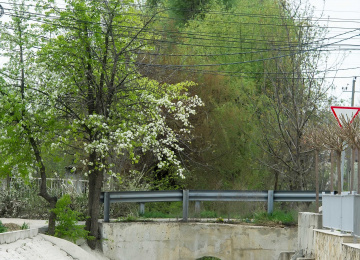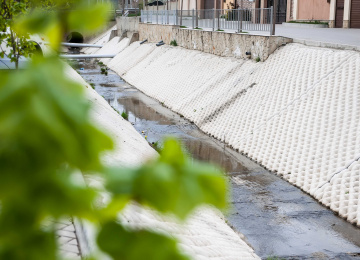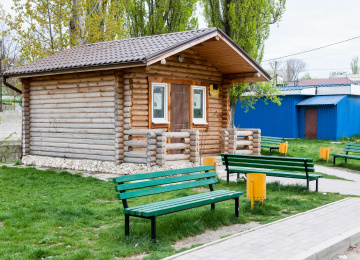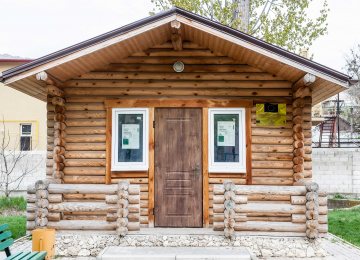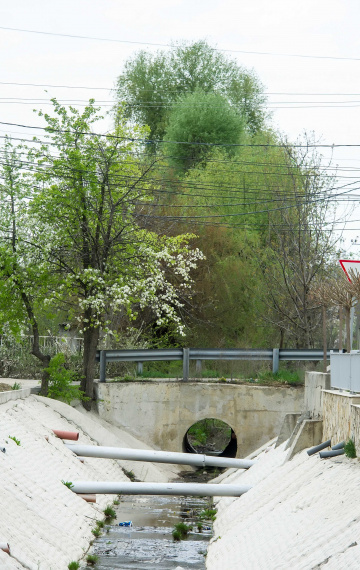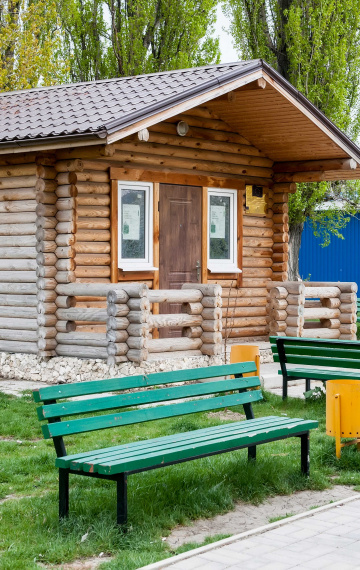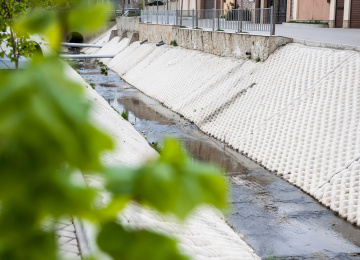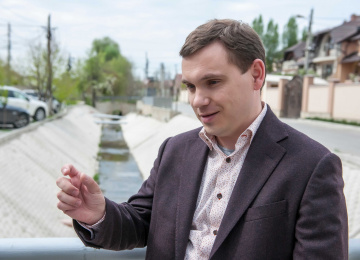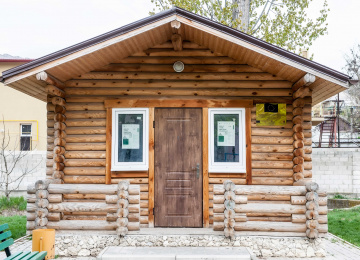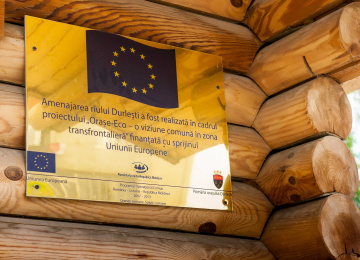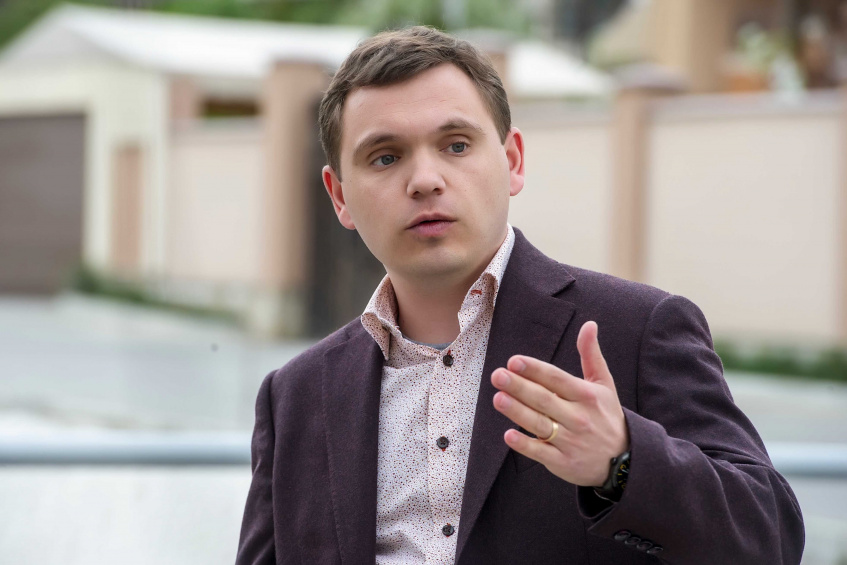
Although the Small and Medium-sized Enterprise (SME) sector is promising in the Republic of Moldova, the lack of investment is making it uncompetitive, and this means the economic growth that could be generated by the private sector is yet to materialise. Interest rates on commercial loans offered by banks are far too high for small businesses, and the repayment terms are too short, so the business environment does not have the security it needs for promising development. And sometimes the loans provided by international banks with the support of the European Union to local banks and leasing companies a breath of fresh air that is enabling small businesses to grow.
Biox Comerţ in Chişinău, a company that specialises in hydraulic engineering, is among those that have had a chance to receive an investment loan from BT Leasing for their development. This leasing company received two loans from the European Bank for Reconstruction and Development (EBRD) to finance machinery and equipment needed by SMEs. In September 2016, Biox Comerţ received a leasing loan of €29,600, which enabled it to purchase high-performance German machinery that it needed for hydraulic engineering. The total cost of the machinery, which is unique in Moldova, was €37,000 and the loan was essential to purchase it. This part of the project is supported by the European Union. “Because this is a special item of equipment, at that time, not many financial institutions wanted to give us the finance to acquire it. BT Leasing’s offer was the most advantageous one from this point of view, so we accepted it. The repayment term ended this year and we managed to pay back the loan on time,” said the manager of Biox Comerţ, Roman Balan.
The first site where the new machinery was tested was in the town of Durlești, in the western part of the Municipality of Chişinău, where the bed of the River Durlești has been cleaned up and developed as part of a European project.
New technology for a cleaner environment
Today, the residents of Durleşti can count themselves among the happy few who are enjoying a cleaner environment. A large part of the bed of the River Durleşti, which passes through the town, has been transformed from a neglected place into an attractive and beautifully developed area that no longer faces the threat of flooding. A few years ago, the river was extremely polluted and it became a place where household waste was dumped, hence a source of pollution for connecting rivers, especially the Bîc and the Dniester. Furthermore, every shower of rain would leading to flooding of nearby homes. In 2014, to save the area from the imminent threat of flooding, to make the water less polluted and to maintain the natural appearance of the environment, a series of works to clean up and develop the river were initiated as part of the “Eco-towns – a shared vision in the cross-border region” project, financed by the European Union through the Romania-Ukraine-Moldova Joint Operational Programme. The total cost of the investments was RON 26 million.
The main contractor that carried out these works was Biox Comerţ, who successfully tested the new machinery when it installed piling to shore up the banks of the river along a stretch measuring approximately 600 metres. “It was only because we purchased the machinery that we were able to honour our contractual obligations”, says Roman Balan. A further 230 metres of the river bed were developed using a German technology that had been in use since the 1970s and had shown to be effective over time. The technology, which is based on Incomats, enables groundwater to emerge at the surface through drainage holes and flow into the river, preventing underground build-ups of water resources. Incomats, which are like mattresses filled with mortar, are highly resistant to erosion and decay and can be used for at least 35 years. In addition, the consolidation project involved major repairs to three bridges that cross the river, which facilitated safe access for residents from one bank to the other.
Although only part of the 1,246 metres of the River Durleşti has been developed so far, the environmental situation in the region has improved considerably. The river has been cleaned up and its banks have been widened and shored up, enabling the water flow to increase. As a result, flooding is no longer a problem. While implementing the project, Biox Comerț paid particular attention to land development. Because of this, the works involved not only greening and consolidating the river bed, but also developing the adjacent land. Trees were planted, benches and rubbish bins were installed, and a rest area for residents was created. Now that the project has been implemented, the town of Durleşti has confidently brought itself into line with the eco-towns that are supported and promoted by the European Union.
One project – many beneficiaries
About 1,000 people who live in the immediate vicinity of the River Durlești are now benefiting from the fact that the river has been saved from degradation. Furthermore, the “makeover” of the river bed has contributed to a rise in the prices of nearby plots of land and houses. The area has become much more attractive.
“Although people were sceptical at first, they eventually became convinced that a good thing had been done. The construction is vital and I can tell you with full authority that the standard to which the works was completed is European,” the manager of Biox Comerţ assured.
The Incomat technology can also be used to develop the bed of the River Bîc, which flows through the city of Chişinău, but due to a lack of resources this initiative is not currently feasible. “The “Eco-towns” project financed by the EU can also provide an opportunity to save the River Bîc, but to access these funds, the authorities of the capital must ask for them. “The saying ‘knock and the door will be opened to you’ is entirely appropriate in this situation,” Roman Balan believes.
New successful projects for Biox Comerț
Biox Comerţ’s track record includes other successfully completed works to protect the environment, an important objective at European level. For instance, in the district of Drochia, where the mixed Moldovan-German company Südzucker Moldova SA is investing in sugar beet cultivation, Biox Comerţ has built two lagoons to store sugar beet vinasse. The company has also built lagoons to store excrement on a few livestock farms so that it is not disposed of in water, but used to produce biogas, thereby promoting “green energy” and the rational use of organic fertilisers.
Biox Comerț’s experience shows that timely investments in machinery, development or new technologies can create high added value for companies. This makes them competitive and innovative at the same time, and they are able to honour their obligations and therefore grow constantly.
EU4Business supports SMEs in Moldova
Alongside the investment in the private sector in Moldova and the improvement in access to financing, the EU4Business Initiative is helping state authorities to create an economic climate, which is more favourable to the stimulation of local and foreign investment. In Moldova, SMEs make up over 97% of all businesses and account for over 55% of employees. They are regarded as the driving force behind the economy and a creator of new jobs. Although the potential of SMEs in Moldova is recognised, they continue to face a number of obstacles such as limited access to financing, bureaucracy, and difficulties in accessing new markets. EU4Business programmes provide support to small and medium-sized enterprises by offering access to financial resources, advice and support for imports and exports.
INSERT
In 2011, BT Leasing MD received a loan for the development of the SME sector worth €2 million from the EBRD. In 2015, BT Leasing MD received a second loan in the amount of €4 million to finance machinery and equipment needed by SMEs.
Author: Mariana Tabuncic

